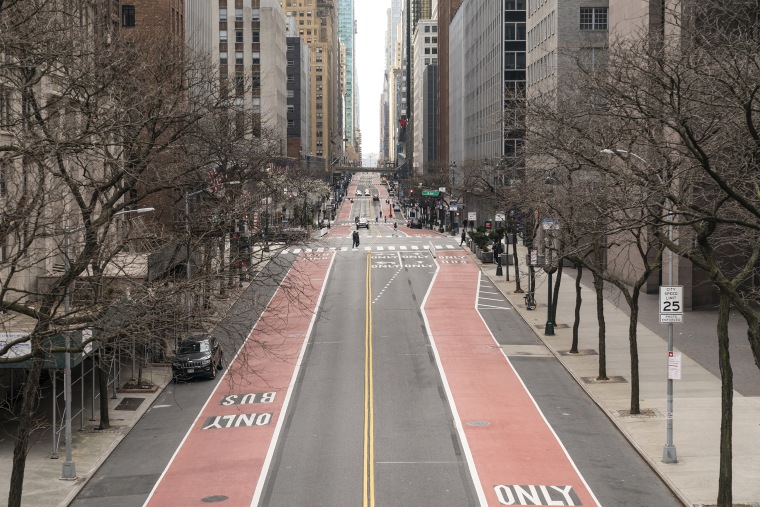As frustrating as stay-at-home restrictions are during the pandemic, national polling continues to point in a sensible direction: a majority of Americans are reluctant to abandon the mitigation efforts too quickly.
Nearly 60 percent of American voters say they are more concerned that relaxing stay-at-home restrictions would lead to more COVID-19 deaths than they are that the restrictions will hurt the U.S. economy, according to a new national NBC News/Wall Street Journal poll.
Circling back to our coverage from last week, the NBC/WSJ results are roughly in line with the latest Pew Research Center report. Related online surveys -- from Politico/Morning Consult, Economist/YouGov, and Reuters/Ipsos -- also pointed in similar directions.
As a USA Today report summarized, "Americans are picking health precautions over a rush back to work -- at least for now."
The national mainstream deserves credit for being responsible and sensible. We're not often confronted with millions of Americans engaged in acts of civic sacrifice simultaneously, but that's precisely what's unfolded in the United States in recent weeks, and that's no small development.
Bloomberg News had a good report along these lines last week, noting that plenty of skeptics predicted that the American mainstream would reject stay-at-home restrictions, but they've been proven wrong. Indeed, CDC Director Robert Redfield conceded that early modeling on COVID-19 fatalities wildly underestimated how quickly Americans would embrace the recommendations and engage in social distancing.
Yes, we've seen groups of far-right folks engage in anti-restriction activism, and I understand why their misguided rallies are generating attention: we're dealing with a group of people, acting at the encouragement of the president and orchestrators, who are a little too eager to make a public-health crisis much worse. Indeed, their activism is itself hazardous.
But the national polling offers worthwhile context: those engaged in dangerous and misguided acts of civil disobedience are easily outnumbered by a sensible mainstream.
